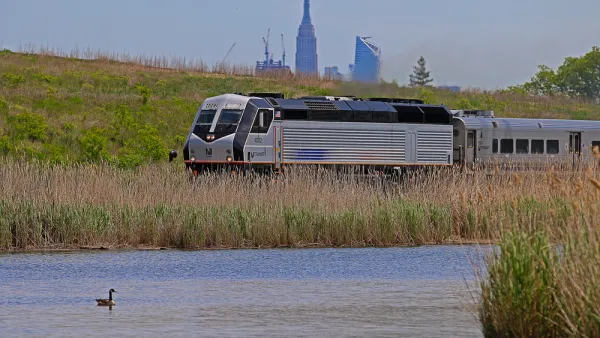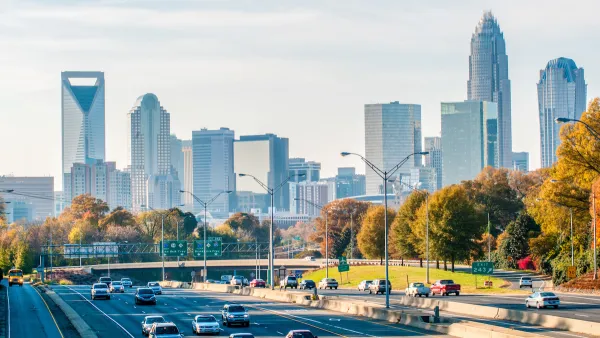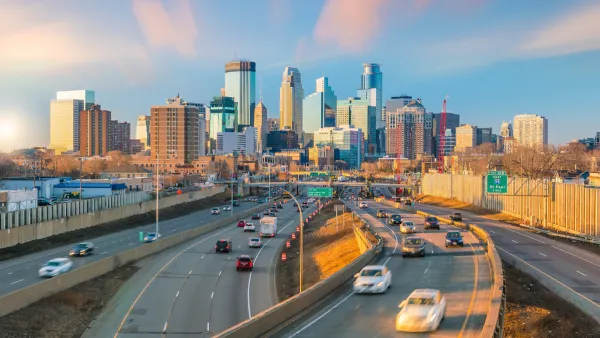The conventional planning wisdom seems to be that long drives are less beneficial to well-being than a short walk. But what about other commuting options?

Last week, I saw something on Twitter I had already seen several times: a link to studies suggesting that people are happier when they can walk to work than when they spend a long time driving to work. This claim strikes me as only slightly less obvious than the claim that water is wet. But at the same time, it raises more questions than it answers. For example:
*Is commuting-related unhappiness limited to driving, or is the long-distance commuter equally dissatisfied whether she bikes, drives, takes a bus, or takes a train? Or to put it another way, does the sheer length of commuting reduce well-being, or is mode choice also an important factor? For example, if a commuter's choice is between a 20 minute drive and a 40 minute subway ride, which is more demoralizing? One British study suggests drivers are as happy or happier than transit users when commuting time is equal; another study disagrees.
*The "short walk/long drive" dichotomy presupposes that work is in a downtown or other walkable neighborhood, while the long drive is from the outer edges of suburbia. But most Americans (including me) work in suburbs. If a commuter's job is in a suburban office park, is he happier living close to the office park, or should he prefer a long ride from a more walkable neighborhood?
*Given that, other things being equal, a short walk is better than a long drive, how should a commuter weigh that factor against other factors? For example, the rent for my current apartment in Manhattan is comparable to the rent for a two-bedroom apartment in Queens, or a three-bedroom house in Suffolk County. As a single person, the extra space is useless to me. But if I had a spouse and a child or two, would the benefits of the extra space outweigh whatever unhappiness I suffered from my commute?
I don't know the answers to any of these questions; I only claim that further research is worthwhile.

National Parks Layoffs Will Cause Communities to Lose Billions
Thousands of essential park workers were laid off this week, just before the busy spring break season.

Retro-silient?: America’s First “Eco-burb,” The Woodlands Turns 50
A master-planned community north of Houston offers lessons on green infrastructure and resilient design, but falls short of its founder’s lofty affordability and walkability goals.

Delivering for America Plan Will Downgrade Mail Service in at Least 49.5 Percent of Zip Codes
Republican and Democrat lawmakers criticize the plan for its disproportionate negative impact on rural communities.

Test News Post 1
This is a summary

Test News Headline 46
Test for the image on the front page.

Balancing Bombs and Butterflies: How the National Guard Protects a Rare Species
The National Guard at Fort Indiantown Gap uses GIS technology and land management strategies to balance military training with conservation efforts, ensuring the survival of the rare eastern regal fritillary butterfly.
Urban Design for Planners 1: Software Tools
This six-course series explores essential urban design concepts using open source software and equips planners with the tools they need to participate fully in the urban design process.
Planning for Universal Design
Learn the tools for implementing Universal Design in planning regulations.
EMC Planning Group, Inc.
Planetizen
Planetizen
Mpact (formerly Rail~Volution)
Great Falls Development Authority, Inc.
HUDs Office of Policy Development and Research
NYU Wagner Graduate School of Public Service






























